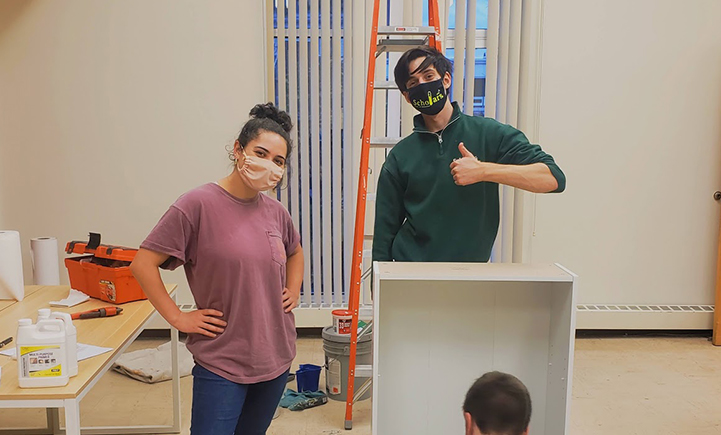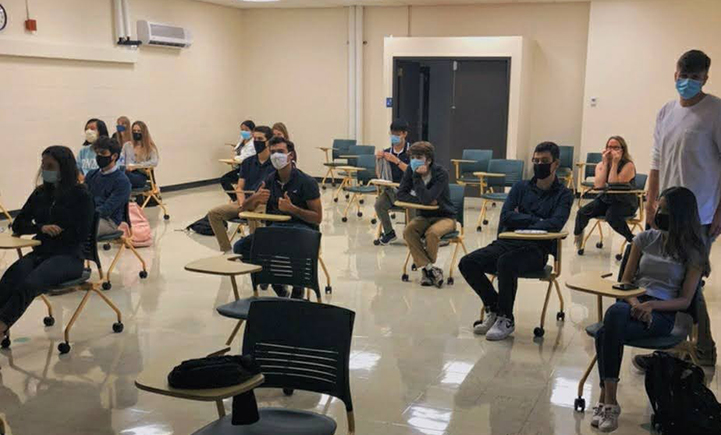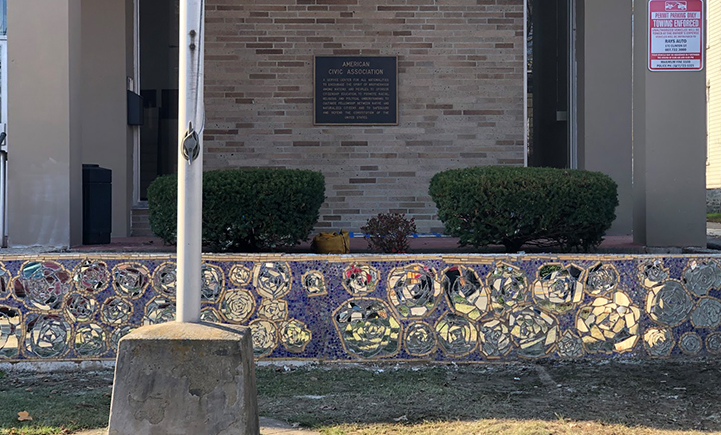PwC Scholars: Spring 2021 updates
PwC Scholars adapt to the COVID-19 pandemic, and begin 2021 community service project

Spring 2021 updates from the PwC Scholars
PwC Scholars adapt to pandemic
Despite the unprecedented nature of the pandemic, the PwC Scholars have taken this as a time to reflect and innovate. With a portion of students learning remotely during the fall, and others in-person seeking some form of interaction, the PwC Scholars executive board worked diligently to maximize the experience for every Scholar, regardless of their location.
This resulted in the creation of a hybrid program model where all events, such as speakers, socials, and community service projects, could be participated in either virtually or in-person.
An example of this new hybrid restructuring could be seen with PwC Scholars Town Halls. As regulations prohibited a large number of students in one room, students were divided into three classrooms and connected through a shared Zoom meeting. Virtual participants were able to join in as well. This allowed equal access to Town Halls for students who were both in-person and virtual. For social events, we had a number of options for Scholars to safely participate in, including socially-distanced hikes in the Nature Preserve, weekly Netflix watch parties and virtual game nights.
While pandemic restrictions limited our ability to do our traditional events, we were able to adapt and ensure Scholars had access to the academic tools, professional development materials, and unique networking opportunities that are the core of the program.
Community service
Community service is a significant pillar of the PwC Scholars program. Due to pandemic-related shutdowns last spring, we were unable to complete our 2019-20 community service project at the American Civic Association (ACA) on our originally scheduled Community Service Day. However, we were able to pick up where we left off in the fall while also starting our 2020-21 community service project with Gigi’s Playhouse, a development center for kids and young adults with Down syndrome.
To work on both projects simultaneously, our president, vice president of development and vice president of fundraising started communicating with Gigi’s Playhouse about their needs, while also securing grants and fundraising for the project. Meanwhile, Scholars continued renovating the ACA, working with artist Emily Jablon to create mirror-flower mosaics to beautify the outside of the building. Scholars also renovated a storage room to create a computer lab, helping to increase accessibility to the internet for those in the community. Adhering to social distancing guidelines, Scholars attended weekly community service events to safely spread out the workload.
To adapt to a hybrid learning model, our virtual Scholars were able to participate in virtual community service programs such as GigiFit at Gigi’s Playhouse or joining a fundraising committee.
New sophomore engagement
Admission to the PwC Scholars program occurs during a student’s first or sophomore year at Binghamton University. Oftentimes, “new” sophomores have to work to learn about what the program entails after being accepted. To combat this hurdle, the internal vice president introduced a new initiative in the fall called New Sophomore Engagement. New sophomores were split into small groups and tasked with analyzing the program, culminating in a final presentation to propose improvements.
One issue the new sophomores discussed was the admission process for first year students. After discussing possible solutions, an admissions intern position was created to learn about how students are selected for the program, and how Scholars could become more involved with the process.
The New Sophomore Engagement initiative was an objective way to introduce improvements to the PwC Scholars program, giving those involved the opportunity to personalize the program in order to meet their needs. Scholars are looking at how to implement these ideas during the Spring 2021 semester, and how to adapt to meet the changing needs of students.



